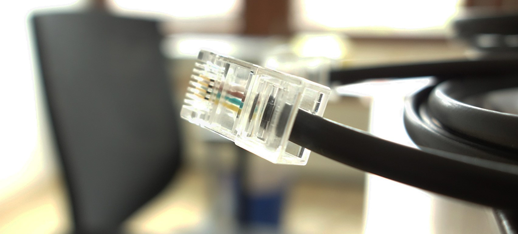VoIP (Voice over internet protocol) is on the rise and can be hugely beneficial to businesses of any size by significantly improving flexibility, communications and providing cost savings. However, whenever a new technology comes along we often worry about how safe and secure it is, that’s fine, even welcomed as long as we keep things in perspective and weigh up the benefits and risks.
VoIP is only as secure as the provider of the service and the network practices they adopt internally to protect you and your company from harm. Some providers will simply resell you a white labelled solution that they are happy to take a commission on, but are nowhere to be seen when things go wrong.
We are often asked, ‘is VoIP secure?’ and it’s not simply a case of a “yes” or “no”.
In practice, the security issues for VoIP users can be broken down into 3 simple questions.
• Can people listen to my call?
• What System Security is in place to prevent fraudulent activity?
• What is call fraud and can others make me pay for calls?
Let’s break these down.
Can anyone listen into my call?
In general, the answer is no. However, it is possible for an individual with good incentive and the technical ability. With an older style PBX phone system that utilized standard analogue lines (like you have at home), your line runs unprotected from your offices all the way back to the exchange. Anyone could simply connect a telephone via 2 crocodile clips across your line at any point and listen “both ways” to your calls. This is not the case with VoIP, as someone would need to be physically connected to your office network where your phones reside or physical access to your ISPs infrastructure. The former is technically possible in larger offices where people come and go all day long; howev, r this is where building physical security comes into play. In reality, both scenarios are extremely unlikely.
What System Security is in place to prevent fraudulent activity?
As with anything connected to the internet you want to make sure it’s as secure as possible. For most internet users, this is simply a password (and not always a secure one). There are many other methods of protection that can be used that are normally included as standard, just not always enabled. These typically include Firewall rules & access control lists. We encourage users to make use of these protection tools and if they are not understood then speak to a network provider who can help!
What is call fraud and can others make me pay for calls?
Call fraud is where an individual has gained unauthorised access to your phone system and starts using it to make calls to international or premium rate numbers. Typically, the individual will have a monitory involvement with the destination numbers and thus benefit financially. This is normally more common with international numbers as these can be harder to track down the people responsible due to lead-time and international legal borders including corporation from legal counterparts. There are many ways to prevent this happening to your business including using a secure network, regularly changing passwords and not allowing unsecure access into your system.
Although it’s Halloween season, we don’t mean to scare you, instead bring to light some vulnerabilities with the system. The benefits of using VoIP far outweigh the risks, and to discover some key features, check out our blog post ‘Benefits of VoIP for small business’.
If you have any questions about VoIP for your business, please contact us now!

